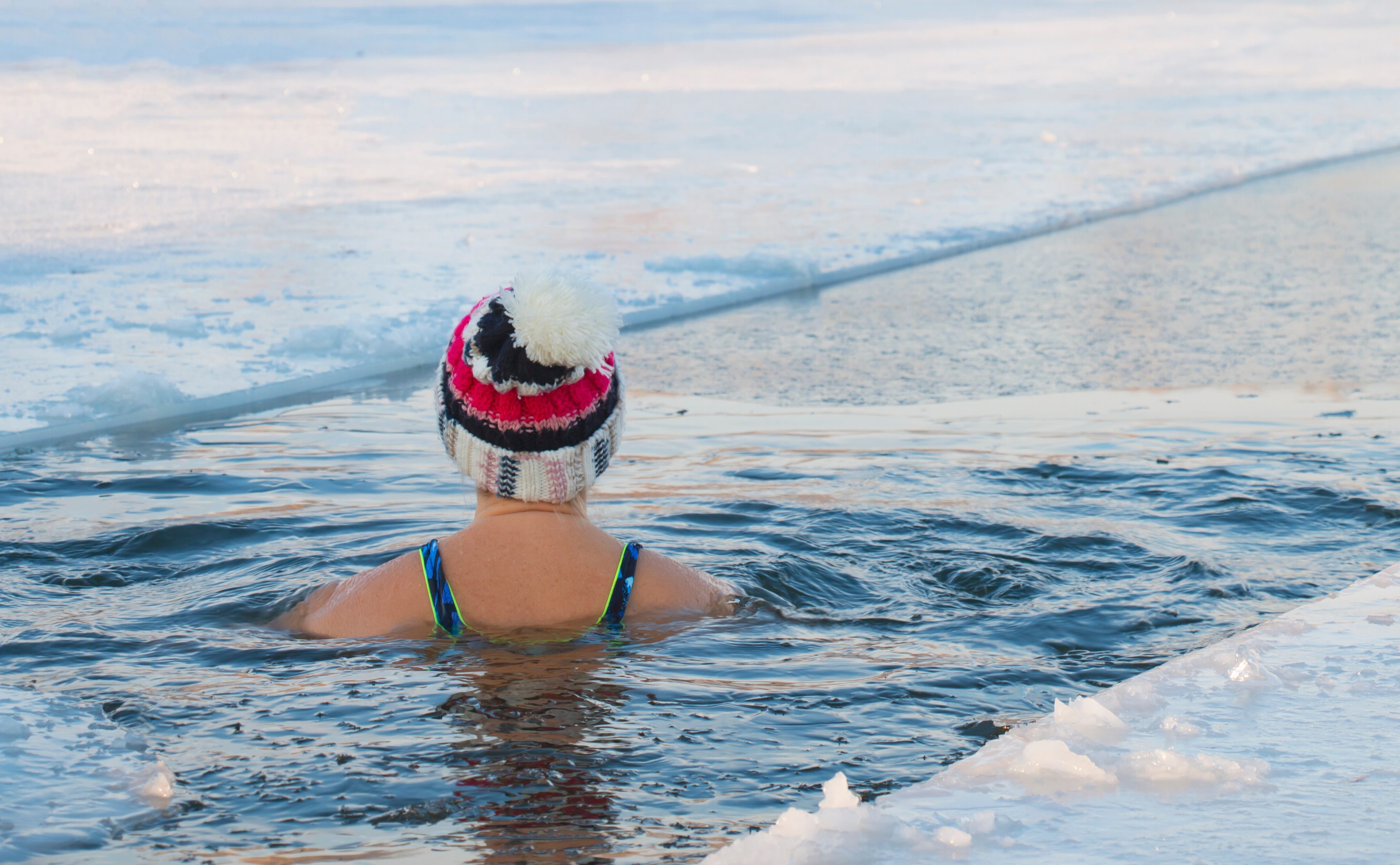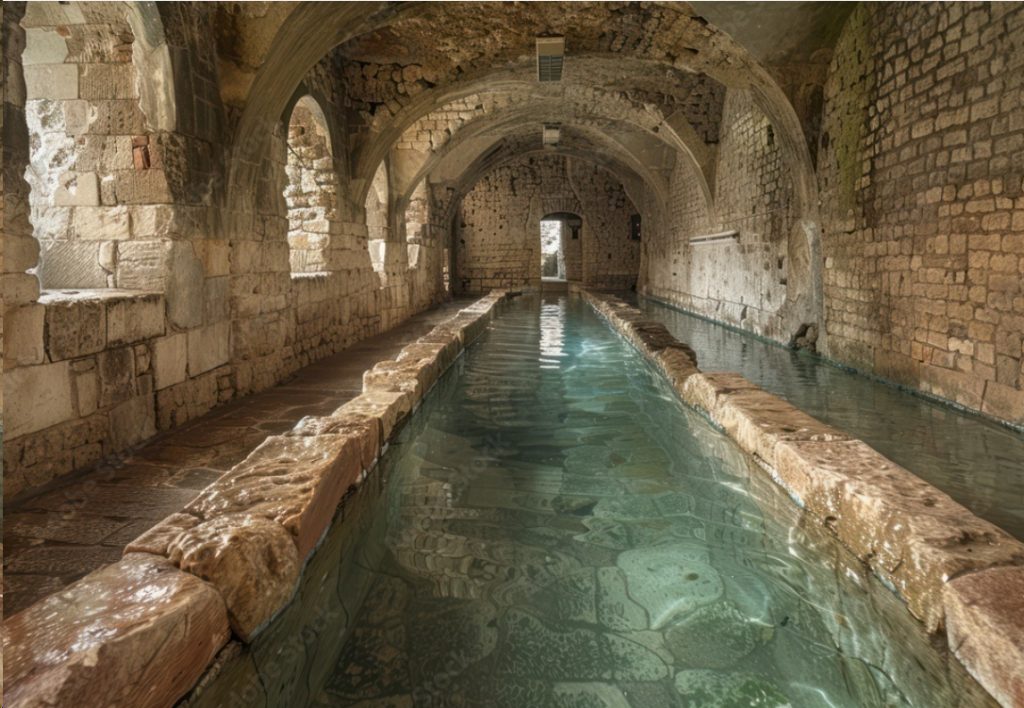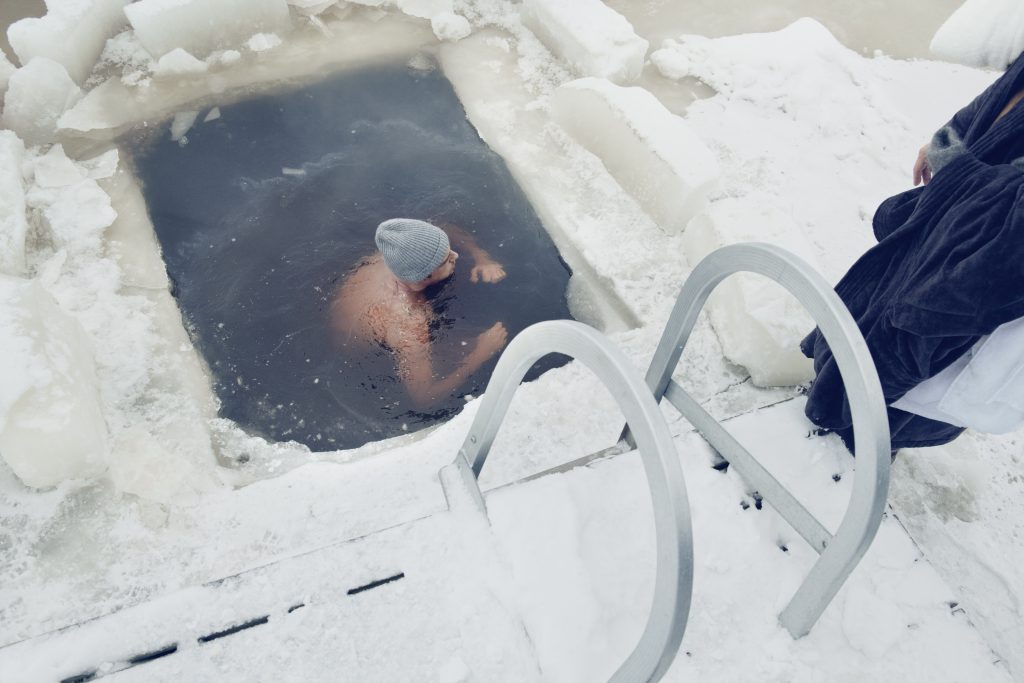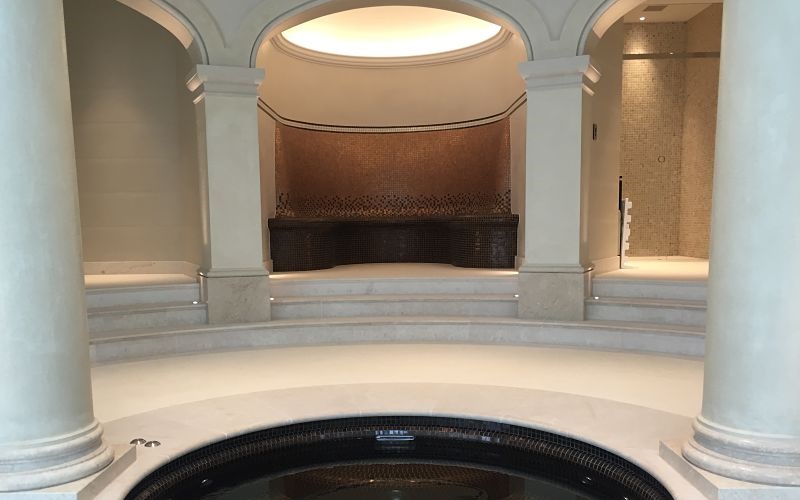
Cold water therapy is trending among elite athletes, amateur sports enthusiasts, health professionals, and wellbeing devotees. Treatment methods include ice baths, cold showers, and cryotherapy, each offering unique benefits for muscle recovery and soreness reduction.
At the extreme end, athletes submerge themselves in ice baths following intensive activity, although cold showers, plunge pools, localised application, and whole-body cryotherapy are less intense, allowing virtually anyone to give it a go.
Cold water immersion for therapeutic and relaxation purposes dates back to ancient civilisations. Both the Greeks and Romans believed in the invigorating and healing properties of cold water, and it is used in traditional Asian medicine to promote overall health. However, it wasn’t until the 19th century that it gained popular acclaim.
Extensive print, TV and social media coverage in the recent years has raised awareness about the positive health outcomes of cold water immersion. This has led to a significant surge in open water swimming – in lakes, lochs, rivers, and seas – around the UK. Meanwhile, the global industry for plunge pools – viewed as a sustainable, environmentally-friendly, and cost-effective option by consumers – is valued at US$413 million, with growth expectations of 3.9% to 2034.
Cold water triggers a survival response in the body, which stimulates an increased blood flow with both physical and mental benefits. For example, a Dutch study on 3,000 people who took daily cold showers (after a warm shower) revealed a 29% reduction in self-reported sickness, compared to participants who only took a warm shower.
Clinical evidence supports many of the health claims and help explain the physical mechanisms induced by cold water immersion that aid exercise-recovery, chronic pain, cardiovascular disease, immune protection, and improve skin and mental health.
Contents
- Positive effects of immersion therapy on recovery
- Cold water therapy can reduce stress-induced pain
- Cold therapy can promote cardiovascular health and immunity
- Improve mental health with cold therapy
- Skincare benefits with cold water immersion therapy
- Is cold water therapy safe?
- Frequently Asked Questions
Positive effects of immersion therapy on recovery
When endurance training, it is important to allow sufficient recovery time to maintain optimal training and competitive performance in subsequent sessions. Cold water therapy helps fatigue recovery after exercise, especially following high-intensity training. A number of studies demonstrate a correlation between cold water immersion (CWI) and reductions in post-exercise stiffness, fatigue, exercise-induced muscle damage, and improvements in athletic performance.
This evidence explains why elite athletes routinely use ice baths as a recovery aid. Indeed, research published last year revealed immediate reductions in muscle soreness and fatigue recovery in subjects submerged in cold water (up to 15C) after physical endurance, compared to a control group.
Scientists attributed the positive physiological changes to vasoconstriction, which increased venous blood return, thus reducing oedema and pain. Cold exposure causes blood vessels to constrict, reducing blood flow and alleviating pain and inflammation. Upon returning to normal temperature, blood vessels expand, facilitating increased circulation and delivering nutrients to the body’s tissues. In this case, rapid cooling may have reduced capillary permeability and helped lower exercise-induced inflammation.
Cold water therapy can reduce stress-induced pain
Science has proven a strong link between chronic pain and the stress response. Chronic or overwhelming stress, whether physical, psychological, emotional, or social, can severely disrupt the nervous system and increase inflammatory responses. It also has a negative effect on immunity, fatigue, insomnia, digestive issues, tissue tension, pain, anxiety, and depression.
Since cold water therapy is a physical stressor, it can be used to help modify an individual’s reaction to any stressful situation. To this end, regular immersion will enable individuals to better manage and control whole-body stress responses.
When immersed in cold water, the sympathetic nervous system responds by releasing adrenaline and cortisol hormones. This increases the heart rate and breathing rate, inhibits digestion, and constricts blood flow to the extremities. While this reaction is a normal response, it can be disproportionate. Cold water can teach individuals how to control the physical responses, through breathing exercises, for example. These same principles can then be applied to everyday scenarios.
Cold therapy can promote cardiovascular health and immunity
Cold water plunging not only stimulates blood flow but also slows heart rate improving risk factors for cardiovascular disease, such as blood pressure and cholesterol levels.
Participants in a US trial, who were submerged in cold water for 15 minutes, showed reduced heart rate and blood pressure. The researchers noted a slight change in stress patterns after cold-water immersion that may have had a beneficial impact on cardiovascular health. Over time, the body acclimatises to cold temperatures, which can further enhance these cardiovascular benefits.
Similarly, the shock of cold-water immersion and increased blood flow protects the body from circulating viruses and helps fight infection.
Improve mental health with cold therapy
Despite limited research, there is some evidence supporting the positive effects of cold water on mental health disorders, such as depression and anxiety. Cold water immersion in natural settings, like cold lakes, can significantly boost mood and improve overall quality of life.
These benefits were clearly observed in a case study on a young adult when depressive symptoms significantly decreased after weekly open water swimming sessions – to the extent that she was eventually able to stop taking medication. Similarly, other research found that twice-daily cold showers also reduced depression symptoms.
Researchers postulate that infrequent acute physical activity and changes in body temperature contribute to depressive symptoms, while several studies allude to the benefits of stressful treatments, including cold water therapy.
Exposure to cold environments activates the sympathetic nervous system, which increases blood circulation and stimulates the release of noradrenaline (a key excitatory neurotransmitters in the brain) and production of beta-endorphin (known to produce the sense of well-being).
Skincare benefits with cold water immersion therapy
Cold water therapy has been shown to offer numerous benefits for skin health, inflammation, collagen production, and regulation of sebum (surface oil) levels. A cold shower is a beginner-friendly method for cold water therapy, providing benefits such as improved skin elasticity, smaller pores, and a healthier complexion.
In fact, it benefits overall skin health by balancing sebum levels, reducing acne and clogged pores, and releasing norepinephrine to modulate sebum production.
Moreover, cold water immersion helps to counteract stress-related factors that impair collagen synthesis, helps reduce wrinkles, and maintain skin firmness. It also strengthens the immune system, stimulates lymphatic drainage to reduce puffiness and swelling, and enhances skin vitality.
Is cold water therapy safe?
There are certain dangers with cold plunges that should be considered before attempting cold water therapy. These include:
- Cardiovascular stress: Sudden exposure to cold water can cause spikes in blood pressure and heart rate, which can be particularly risky for individuals with heart conditions. Individuals with a heart problem should consult their doctor before attempting a cold plunge or avoid it altogether.
- Hypothermia: Prolonged exposure to cold water can lead to hypothermia, a potentially life-threatening condition. To minimise this risk, limit cold plunges to just a few minutes and slow build up to longer sessions.
- Ice bath: Using an ice bath for cold water therapy can cause vasoconstriction followed by vasodilation, which improves circulation and reduces inflammation. However, it is essential to follow safety guidelines to avoid adverse effects.
- Hyperventilation: Cold water can cause airway constriction, making breathing difficult. Individuals with a respiratory condition ,such as asthma, should consult their doctor before trying a cold plunge.
- Muscle cramps or shock: The initial shock from cold water can cause disorientation, muscle cramps, and difficulties in controlling movement. To mitigate this, start with warmer temperatures and gradually work up to colder ones.
Cold water therapy offers a multitude of benefits that extend beyond just physical health. From reducing inflammation and speeding up muscle recovery to boosting mental resilience and enhancing mood, this practice can be a powerful tool for overall well-being. While it may seem daunting at first, incorporating cold water therapy into your routine, even in small steps, can lead to significant long-term gains. As more research continues to validate its benefits, cold water therapy is emerging as a simple yet effective way to strengthen both body and mind, making it a worthwhile addition to any wellness regimen.
If you are looking for a bespoke cold therapy solution for your home but don’t know where to start, get in touch with Dröm UK today and speak to one of our cold therapy design specialists.
Frequently asked questions
What do I need to know about cold water therapy?
Immersion is cold water helps to alleviate pain by constricting blood vessels and reducing blood flow to peripheral body parts. This may decrease pain, improve muscle recovery, and enhance exercise performance.
What are the risks of cold water therapy?
Getting into very cold water should be approached with caution and is a gradual process. Users should seek advice on best practice because it can lead to a shock, faster heart rate, higher blood pressure, and shortness of breath without proper acclimatisation. Consulting a health professional will help minimise the risks.
Is there a science behind cold water immersion?
There are plenty of studies to verify the benefits of cold water immersion, such as the positive effects on fatigue and mood, metabolic health, reduced cholesterol, and improved blood sugar.
How often should I cold plunge?
There is no determined optimum time for cold water immersion sessions. Some experts suggest cold plunging every day, but this can compromise the potential for long-term performance improvements – if this is your motivation.
























